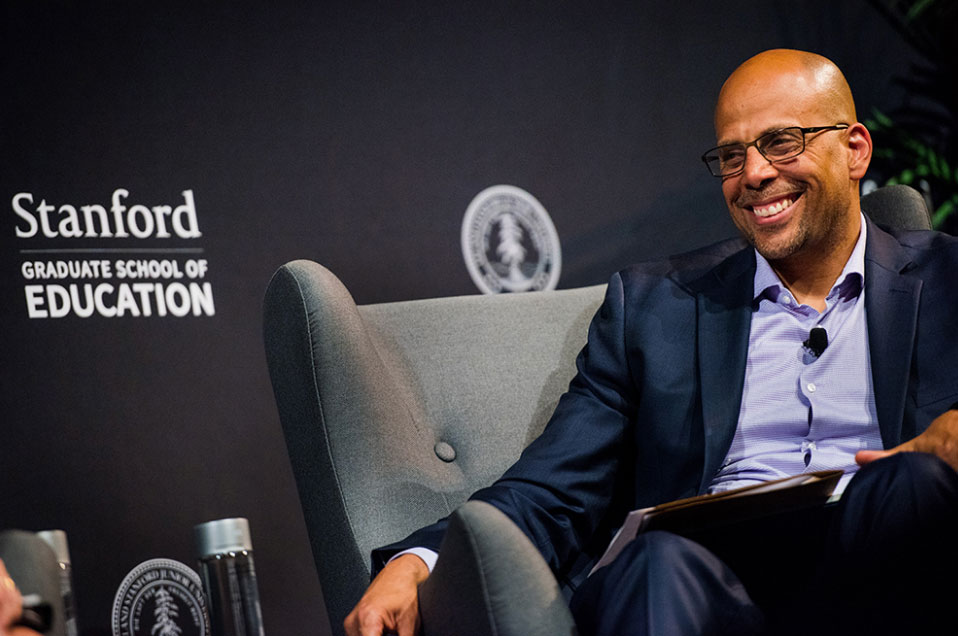
Jim Shelton, MA ’93, MBA ’93, leads education efforts for the Chan Zuckerberg Initiative and previously served as Deputy Secretary of the United States Department of Education. In an interview with Dean Dan Schwartz and Senior Lecturer Denise Pope, he discusses the problems and potential solutions for the U.S. education system.
Listen to the full episode at the link below and find more episodes at Stanford Radio. School’s In airs weekends on SiriusXM Insight channel 121.
Interview highlights
Path to education
The interesting thing is that other than a dad, the very first thing I thought I wanted to be was a teacher and so I started down that path. Unfortunately, my mom was not down with that plan. I was good in math and science and she thought that I had the opportunity to be an engineer or something that would be lucrative. And so she basically forbade me from pursuing teaching.
One of the reasons I thought something must be wrong in the education system is I remember being in third grade helping one of my best friend's brothers who was in sixth grade with his homework and we went to different schools. I was like, “Something's wrong here because he's definitely smarter than I am.” All of them were smarter than I was and so why does he not know what I already know?
Defining the purpose of education
One of the things that we deeply believe is that we've allowed ourselves to start to too narrowly define the purpose of education. Human beings – young children especially – have a comprehensive set of developmental opportunities and needs, whether it's their physical health, their mental health, their social-emotional development, their sense of identity, their individual or a group identity, as well as their cognitive skills and academic skills. And by overly narrowing that definition, we both miss the importance of the foundational elements and those other things, as well as the outcome goals we should be shooting for, to have fully-fulfilled human beings who are able to execute on all those dimensions of their life.
So we're trying to do the work to say, okay, not only do we want to call attention to these other dimensions that are really important, but understand how do you know if you're doing a good job developing them when they are young children? How do you know if they have a delay? What kinds of interventions work to support them and in what kind of environments do you need to implement for that work? It's a shift for the education space to think that broadly about children in many cases.
A need for personalized approaches
There's no silver bullet. As much as I wish there were, what we want to do is start with the vision of what we actually want for children and that is that we actually develop them as whole children – not just their academic skills, but more comprehensively.
I think we also need to recognize that the science is pretty clear that children are different. They learn in different ways. They have different needs. So across all those dimensions, you could think of so many different permutations about how you meet the needs of a child and how their families and their schools will intersect in trying to meet their needs. And so this need to personalize the approaches to each child is very important.
Now, the more you try and do that, the more difficult you make the overall task of reaching each and every child. So then the question becomes, well, what is the combination of skills that teachers need and the tools they need to have in their hands, and the exchanges that we need to have between parents and school to meet the needs of every single child. And it's a really hard problem.
But the good news is that is a bounded problem. We know we can create these kinds of experiences and these kinds of environments. We do it in small scale for many, many kinds of children. We just haven't figured out how to do it for everyone.
Editor's note (July 11, 2018): Jim Shelton announced he would be leaving CZI to move back to Washington, DC. April Chou, MA/MBA ’01, will be the interim head of education at the organization.
Subscribe to our monthly newsletter.